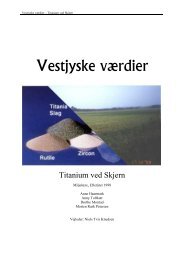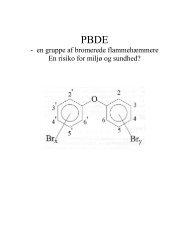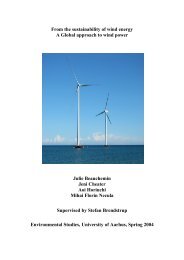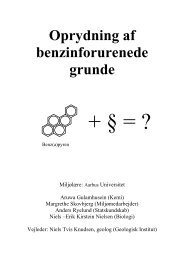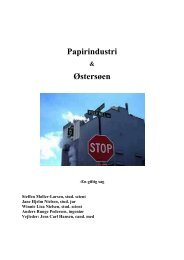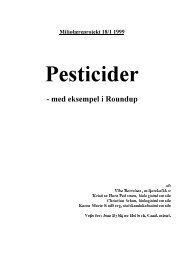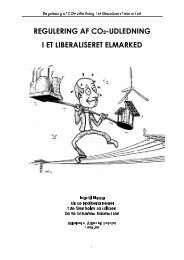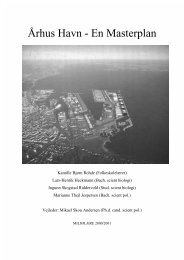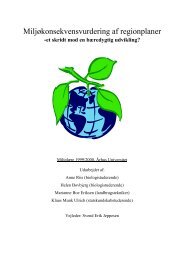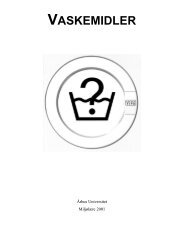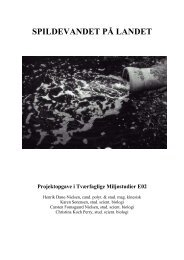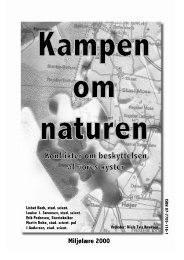University of Aarhus ECOTOURISM AS A WAY TO PROTECT ...
University of Aarhus ECOTOURISM AS A WAY TO PROTECT ...
University of Aarhus ECOTOURISM AS A WAY TO PROTECT ...
You also want an ePaper? Increase the reach of your titles
YUMPU automatically turns print PDFs into web optimized ePapers that Google loves.
Ecotourism as a sustainable way to protect nature<br />
In 1998 the Ecuadorian government made some strategies both through<br />
legislation and planning for protection and conservation <strong>of</strong> Galapagos. The<br />
result was the New Special Law.<br />
3.1.5. The effect <strong>of</strong> tourism<br />
It is difficult to distinguish between ecotourism and mass-tourism, but in<br />
general tourism have produced some related trends in Galapagos, which are<br />
threatening the island’s biodiversity and ecosystems. These trends are described<br />
below.<br />
a. Decline in quality <strong>of</strong> tourism<br />
Tourists, scientists and even boat owners have complained that the most<br />
visited places are becoming overcrowded. The government is supposed to set<br />
limits on the number <strong>of</strong> tourist and tour boats admitted each year, but these<br />
limits keep being raised (Honey, 1999).<br />
In 1992, the government announced that it was not issuing any new boat<br />
permits, but boat owners found ways to get around the restriction, by adding<br />
more berths to the boats or by buying permits from owners <strong>of</strong> smaller boats<br />
(Honey, 1999).<br />
As tourist numbers have grown and competition among the companies<br />
have increased, the companies have taken cost-saving shortcuts that negatively<br />
affect the marine reserve. For instance tour boats dumping organic and inorganic<br />
waste within the marine reserve instead <strong>of</strong> bringing for disposals and most<br />
common practices is for floating boats to discharge their sewage and organic<br />
kitchen wastes into the ocean (Honey, 1999).<br />
In 1997 another threat loomed over the marine reserve. Sports fishing and<br />
special type <strong>of</strong> spear fishing as part <strong>of</strong> the ecotourism market. With over-fishing<br />
already, sports fishing could not be policed and would only lead to further<br />
49



